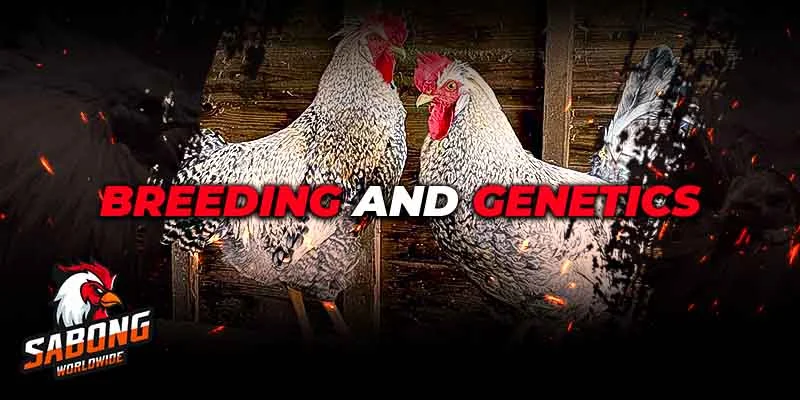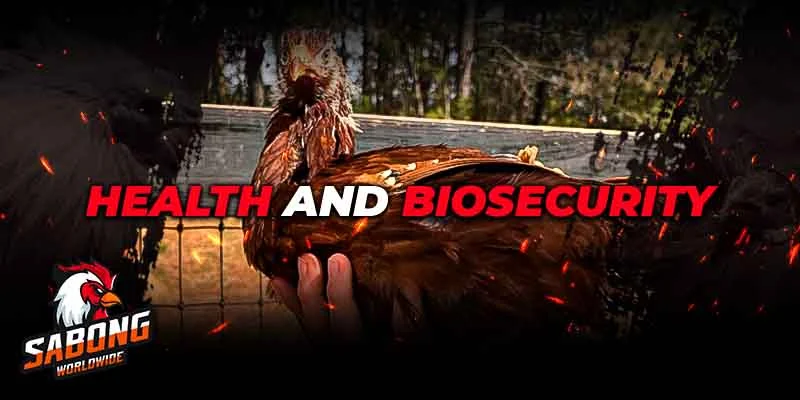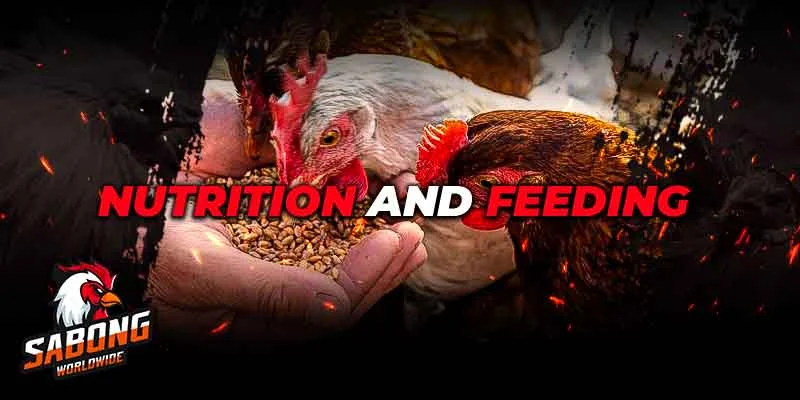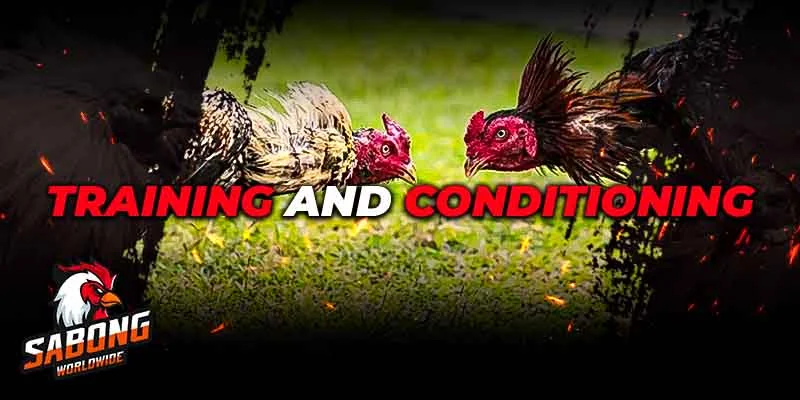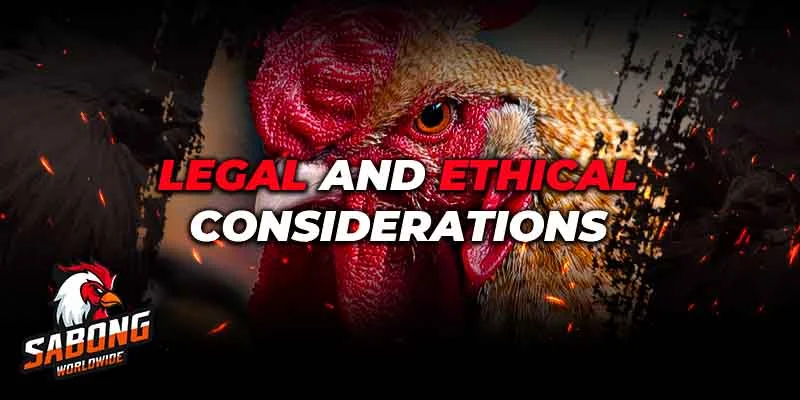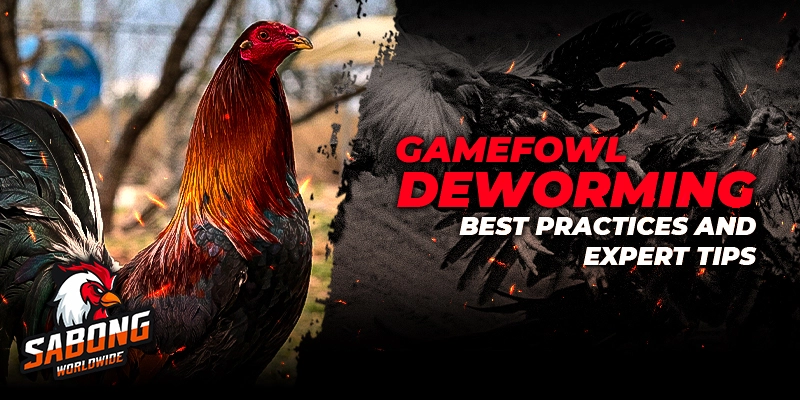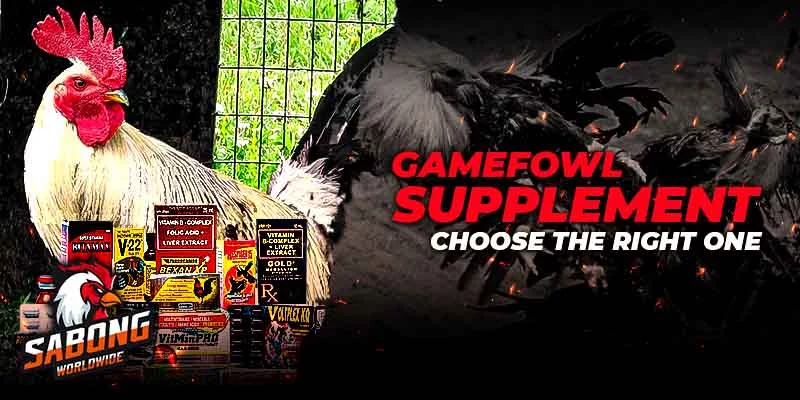As dedicated gamefowl enthusiasts, we understand the importance of properly keeping methods to ensure our birds’ health, vitality, and peak performance. From housing and breeding to training and physical conditioning, every aspect of our operations demands attention to detail and adherence to best practices.
Here are some key advantages of employing proper gamefowl keeping methods:
- Improved Health and Vitality: Adopting best practices in housing, feeding, and disease prevention ensures our birds are healthy and strong. This leads to better performance and longer lives for the gamefowl.
- Enhanced Genetic Quality: We improve our fowl’s bloodlines through careful breeding and managing genetic diversity. This helps maintain desired traits and reduces genetic problems, keeping our lines strong generation after generation.
- Optimized Performance and Competitiveness: Effective training and nutritional programs prepare our gamefowl for peak performance. Well-conditioned birds are more competitive, showcasing superior stamina and skills.
- Increased Operational Efficiency: Accurate records and efficient management systems help streamline our gamefowl-keeping processes. This increases productivity, cuts costs, and reduces mistakes.
- Compliance and Reputation: Following animal welfare standards and legal requirements avoids legal issues and maintains the good reputation of gamefowl sports and enthusiasts.
- Preservation of Tradition: By continuing the traditional practices of gamefowl keeping, we honor and sustain the cultural history associated with these birds for future generations.
- Environmental Sustainability: Operating a biosecure and environmentally responsible gamefowl farm minimizes the environmental impact and reduces disease risks between domestic and wild birds.
Housing and Facilities
Creating a suitable living environment is the foundation of successful gamefowl keeping. To accommodate our birds’ unique needs, we must carefully consider:
Coop Design and Construction
Our coops are designed with security, ventilation, and ease of cleaning in mind. Predator-proof construction, ample airflow, and smooth surfaces ensure our birds’ safety and comfort while facilitating efficient sanitation.
Pen and Run Requirements
Spacious pens and runs are essential for allowing our gamefowl to exercise, forage, and exhibit natural behaviors. We provide ample space per bird and perches, nest boxes, and secure outdoor areas to promote their physical and mental well-being.
Environmental Control Systems
Maintaining optimal environmental conditions is crucial for our birds’ health and performance. We employ temperature, humidity, and lighting control systems to mimic their natural habitat and regulate their biological cycles.
Sanitation and Hygiene
Rigorous sanitation protocols are a cornerstone of our operations. Regular cleaning, disinfection, and pest control measures help prevent the spread of diseases and maintain a hygienic living environment for our feathered athletes.
Breeding and Genetics
Preserving and enhancing our gamefowl bloodlines is a sacred responsibility we take very seriously. To uphold the genetic integrity of our flocks, we employ the following strategies:
Bloodline Selection and Maintenance
We carefully select and maintain our breeding stock, prioritizing individuals with desirable physical and behavioral traits and strong genetic pedigrees. Meticulous record-keeping and strategic breeding techniques ensure the preservation of our prized bloodlines.
Breeding Strategies and Techniques
Our breeding program incorporates strategies and techniques like line breeding, outcrossing, and selective culling. These methods allow us to concentrate desirable traits, increase genetic diversity, and continually refine our strains.
Incubation and Hatching Practices
Proper incubation and hatching practices are essential for producing healthy, vigorous chicks. We strictly control temperature, humidity, and ventilation during incubation and follow the best egg handling, candling, and brooding practices.
Health and Biosecurity
In gamefowl keeping, vigilant health management and stringent biosecurity protocols are non-negotiable. We take a proactive approach to safeguarding our flocks through:
Disease Prevention and Monitoring
Early detection and prevention are key to minimizing the impact of diseases. We meticulously monitor our birds for signs of illness, implement strict quarantine measures, and follow comprehensive vaccination and deworming schedules.
Vaccination Programs
Keeping our fowl up-to-date on recommended vaccinations is crucial for protecting them against common poultry diseases. We adhere to well-established vaccination protocols tailored to our region and flock’s needs.
Parasite Control and Deworming
Internal and external parasites can wreak havoc on our birds’ health and performance. Our parasite control program includes regular deworming treatments and measures to manage pests like mites and lice.
Quarantine and Isolation Protocols
Strict quarantine and isolation procedures are enforced to prevent the introduction and spread of diseases within our facilities. Any new arrivals or potentially infected birds are immediately isolated and closely monitored before being integrated into the flock.
Nutrition and Feeding
Proper nutrition is the fuel that powers our gamefowl’s growth, development, and competitive edge. We place a strong emphasis on:
Nutritional Requirements by Life Stage
Our birds’ dietary needs vary depending on age, sex, and purpose. We carefully formulate rations to meet the specific nutritional requirements of chicks, growers, breeders, and stags, ensuring they receive the ideal balance of protein, energy, vitamins, and minerals.
Feed Formulations and Supplements
While we utilize high-quality commercial feeds, we also incorporate custom feed formulations tailored to our flocks’ unique needs. These formulations may include specialized protein sources, energy boosters, and supplemental additives like probiotics and enzymes.
Feeding Schedules and Regimens
Consistency is key when it comes to feeding our gamefowl. We adhere to strict feeding schedules and regimens based on age, life stage, and performance goals, ensuring our birds receive the right nutrients at the right times.
Water Quality and Management
Clean, fresh water is an often-overlooked but critical component of our birds’ diets. We maintain impeccable water quality through regular cleaning and disinfection of water sources and monitor water intake to ensure our fowl stay properly hydrated.
Training and Conditioning
To unleash the full potential of our gamefowl, we employ comprehensive training and conditioning methods that prepare them for the rigors of competition:
Physical Conditioning Methods
Regular exercise and physical conditioning are essential for building our birds’ strength, endurance, and overall fitness. We incorporate techniques such as treadmill training, sparring sessions, and free-range foraging to ensure our fowl are in peak physical condition.
Sparring and Combat Training
Honing our birds’ fighting skills and instincts is important to their training regimen. Through carefully supervised sparring sessions and controlled combat scenarios, we help our gamefowl develop their natural aggression, footwork, and tactical prowess.
Handling and Socialization Techniques
Proper handling and socialization are vital for ensuring our birds’ safety and reducing stress during training and competitions. We employ gentle but firm techniques to acclimate our fowl to human interaction and build their confidence in various scenarios.
Pre-Fight Preparation and Routines
Before any competitive event, our birds undergo a meticulous pre-fight preparation routine. This includes dietary adjustments, supplements, and specialized grooming practices to ensure they are in optimal condition and ready to perform at their best.
Transportation and Handling
As gamefowl enthusiasts, we understand the importance of safe and responsible transportation and handling practices:
Crating and Transport Best Practices
When transporting our birds, we adhere to strict best practices for creating, ventilation, and environmental control. Our crates are designed for maximum comfort and security, and we closely monitor our fowl’s well-being during transit.
Handling and Restraint Techniques
Proper handling and restraint techniques are essential for minimizing stress and preventing injury to our birds and handlers. We employ gentle yet firm methods, ensuring our fowl are secured safely while avoiding unnecessary discomfort or distress.
Event and Show Logistics
Attending competitive events and shows requires careful logistical planning. We arrange for secure and comfortable housing, handling, and transportation of our birds and ensure compliance with all relevant regulations and biosecurity protocols.
Biosecurity During Transport
Maintaining strict biosecurity measures during transportation is crucial to prevent the spread of diseases. We implement rigorous cleaning and disinfection protocols and quarantine procedures and minimize contact with outside birds or contaminated areas.
Legal and Ethical Considerations
As responsible gamefowl keepers, we are acutely aware of the legal and ethical implications of our activities, and we strive to uphold the highest standards of conduct:
Regulations and Licensing Requirements
We diligently research and comply with all relevant local, state, and federal regulations governing gamefowl keeping, breeding, and transportation. We obtain the necessary licenses and permits to operate legally and ethically where required.
Animal Welfare Guidelines
The well-being of our birds is our utmost priority. We adhere to strict animal welfare guidelines, ensuring our fowl have appropriate housing, nutrition, healthcare, and handling practices that minimize stress and promote their overall health and comfort.
Ethical Practices in Gamefowl Keeping
Beyond legal compliance, we embrace a strong ethical code that guides our actions. We condemn practices involving cruelty, neglect, or exploitation of our birds and promote responsible ownership and sportsmanship within our community.
Responsible Ownership and Sportsmanship
As gamefowl keepers, we recognize the privilege and responsibility that comes with our passion. We strive to be model ambassadors, educating others about our practices, respecting the rights of those who may disagree, and fostering a spirit of camaraderie and fair play within our competitions.
Conclusion
In conclusion, using the proper methods to keep gamefowl boosts their health and performance and ensures we act responsibly and sustainably. By focusing on proper housing, effective health care, careful breeding, and balanced nutrition, we keep our birds healthy and ready to perform at their best. Following ethical standards and legal rules helps us maintain a good reputation in the gamefowl community. By sticking to these practices, we preserve the traditions of gamefowl keeping and promote environmental sustainability. We ensure this cherished tradition thrives for future generations by continuing to improve and adapt.
For detailed guidance and a wide range of tips, check out our dedicated website, Sabong Worldwide.



